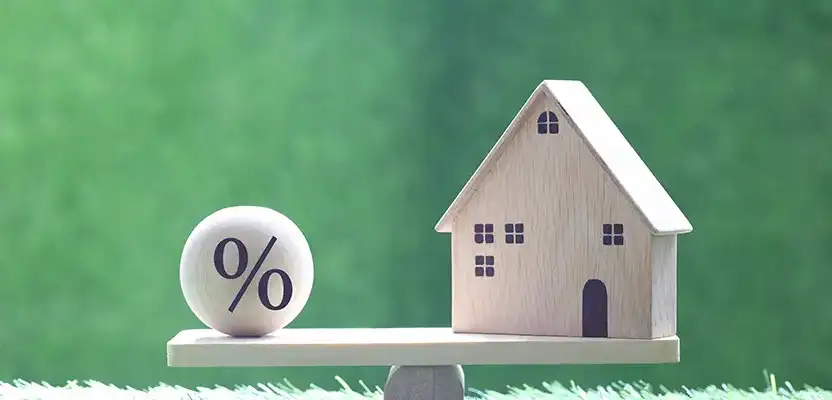Thinking of buying a new property? There are many types of financial products available in the UK when it comes to mortgages.
Read about what a fixed rate mortgage offers to discover if it aligns with your financial situation to aid you in the process of homeownership.
What does a fixed rate mortgage offer?
A fixed rate mortgage locks the interest rate on a home loan for a set period. Borrowers with this type of mortgage pay the same amount every month for the duration of the fixed rate period.
This financial product offers predictability in mortgage payments, shielding the borrower from fluctuations in interest rates.
Historical context of interest rates
Interest rates have historically oscillated, influenced by economic conditions and policies set by the Bank of England.
Fixed rate mortgages gained popularity as borrowers sought shelter from the volatility of variable rates. Reviewing past trends provides insight into the durability of fixed rates in different economic climates.
The workings of a fixed rate mortgage
Interest rates and monthly repayments
A fixed rate mortgage ensures monthly payments remain unchanged for a set term. This allows you, the borrower, to budget with certainty, as the same interest rate applies throughout the fixed period, regardless of market fluctuations.
If interest rates rise, your payments won't increase; conversely, they won't decrease if rates fall.
Fixed rate mortgage advantages
The fixed period ranges from two to ten years or more. During this phase, the interest rate is locked.
It's a period of stability for your finances, where you can plan expenditures without worrying about fluctuating mortgage rates.
What happens after the fixed rate period ends?
When the fixed rate mortgage ends, you'll likely transition to the mortgage lender's standard variable rate (SVR). Everymortgage lender has a different SVR, which can change at any time.
Typically, the SVR is higher, resulting in increased monthly payments. Planning ahead for this transition can involve searching for a new mortgage deal to maintain affordable repayments.
Types of fixed rate mortgages available
Two and three years fixed rate deals
Short-term fixed rate deals, such as two or three years often offer lower interest rates, making them attractive if you desire lower initial repayments or might consider moving house relatively soon.
However, they require more frequent reassessments and potentially more frequent remortgaging, which can entail additional costs.
Five and ten years fixed rate deals
Long-term fixed rate deals provide a longer period of repayment stability. A five and ten years fixed rate mortgage could be suitable if you seek certainty over a more extended period.
These options often come with a slightly higher interest rate but save you from the need to remortgage in the near future, avoiding additional fees and the uncertainty of changing interest rates.
Financial considerations of fixed rate mortgages
Calculating the overall cost
Fixed rate mortgages simplify the calculation of housing costs over time. The monthly payment remains constant, easing budgeting for homeowners.
Borrowers must consider the entire financial commitment, including the product fee, completion fee, and early repayment charges.
These costs affect the total amount paid over the mortgage term. You must compare the sum of all charges and monthly repayments against your personal financial goals.
You may want to read in detail about the fees associated with mortgages.
Pros and cons of fixed rate mortgages
Advantages of a fixed rate
Fixed rate deals offer stability in monthly repayments, shielding borrowers from interest rate rises. This predictability is particularly beneficial for those on a fixed income.
Locking in a low rate can lead to significant savings if interest rates rise. Homeowners value the ease of financial planning that a fixed rate mortgage provides.
Potential drawbacks
Fixed term mortgages may come with higher initial rates than variable options.
An early repayment charge often applies, discouraging borrowers from switching loans if circumstances change.
When interest rates fall, fixed rate mortgage holders do not benefit from reduced monthly payments. Assessing the balance between stability and flexibility is a critical step before committing to a fixed rate mortgage.
When the period of mortgage ends, your fixed rate deal will expire.
Fixed rate vs variable rate mortgages
A variable rate mortgage fluctuates with the market, often tracking the Bank of England's base rate. Monthly repayments can vary, offering the chance of lower payments if interest rates drop.
Borrowers often find variable rate mortgages appealing for their initial lower rates compared to fixed rate mortgages.
When interest rates rise, those with variable rate mortgages see their monthly payments increase. Fixed rate mortgage holders remain insulated from such market shifts during their fixed term.
Stability in financial planning comes at the premium of potentially higher starting rates.
How to secure the best fixed rate mortgage deal
Assess your financial situation before searching for a fixed rate mortgage. Strong credit scores and stable income attract better rates. Also, consider lender's reputation and customer service, not just the rates.
Comparing deals: the best approach
Beyond the headline interest rate, factor in fees and charges. Use comparison sites and direct lender queries to broaden your search for the best deal.
Factor in any early repayment charges, which can impact the cost-effectiveness of exiting a fixed rate mortgage early.
The Bank of England base rate can guide your decision on when to lock in a fixed rate, saving you money if timed correctly.
Choosing a fixed rate mortgage is about finding a balance that fits your financial situation and future plans.

